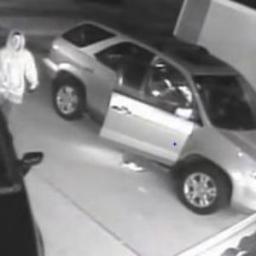Keyless entry fobs result in rash of vehicle thefts
 As vehicles become more technologically advanced, thieves are becoming technologically savvy, too. Cars with a hands-free key fobs typically unlock a car within about 30 centimeters. But across the USA, thieves have begun using a device called a power amplifier to help unlock cars. The amplifier, which can cost less than $20 over the Internet - takes the signal from the car and projects it as far as 100 meters, so your car can find your key fob in your purse, pocket or the table where you dump your stuff when you come in the door.
As vehicles become more technologically advanced, thieves are becoming technologically savvy, too. Cars with a hands-free key fobs typically unlock a car within about 30 centimeters. But across the USA, thieves have begun using a device called a power amplifier to help unlock cars. The amplifier, which can cost less than $20 over the Internet - takes the signal from the car and projects it as far as 100 meters, so your car can find your key fob in your purse, pocket or the table where you dump your stuff when you come in the door.In Toronto, Los Angeles, Long Beach, New York, Springfield, and more cities, police have reported a spike in thefts from Toyota and Lexus SUVs, Priuses, and more vehicles, all parked in owners' driveways with no signs of damage. As more people buy cars with these no-push key fobs, what's the solution to stopping this type of break-in? "Use a microwave" or wrap your keys in aluminum foil. The heavy metal cages block the signal. It's another case of convenience becoming a two-edged sword.
The scenario goes something like this. The thief pulls up to the sidewalk in getaway car and hits the button. The amplifier amplifies the signal the car is constantly sending to the key. The key responds to the amplified "Key where are you?" signal with its usual "Itsa me, the key!" signal, et voila, the car is unlocked.
Surely it wouldn't be that easy, but the evidence seems to suggest it is. There seems to be no validation beyond sign and countersign. Maybe they'll patch that up by adding more tests to the car's routine, but the key is probably always going to be a dumb device (unless they make it a smartphone app) due to battery life.